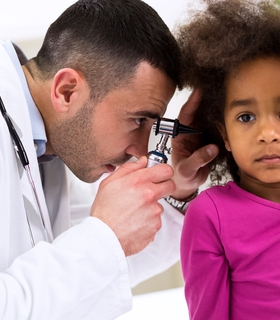Article at a glance:
If you are a parent, you have probably seen your fair share of ear infections and earaches. Children are more susceptible because the size and shape of their Eustachian tubes are different than adults—making it easier for the bacteria to get in and harder for fluid to get out.
Unfortunately, figuring out whether or not your child has an ear infection can be difficult—especially if your child is younger. Here are some things to look for:
However, earaches are not always caused by ear infections. Sometimes the pain is caused by congestion, fluid in the ear, damage to the eardrum, or swimmer’s ear. If your child has an earache, it is a good idea to see your doctor to get a diagnosis. The only way to know for sure is for a doctor to examine your child’s eardrum.
But don’t worry if your child gets an earache after your pediatrician’s office is closed—in most cases it is okay to wait until morning to see the doctor. However, you will need to seek immediate medical attention if you notice red swelling behind your child’s ears or your child complains of a stiff neck.
The first step is to see if your child has an earache or an ear infection since they require different treatment. Depending on how the eardrum looks, your pediatrician will decide whether or not an antibiotic is necessary. If your child is fully immunized, has no fever, is over the age of two, and has no history of chronic ear problems, there is a good chance that your child’s earache will heal on its own without antibiotics. Antibiotics are most commonly useful for children with severe symptoms or who may have other health problems.
Antibiotics can take about 24 hours to start working, so until then, here are some things you can do to make your child more comfortable.
Studies have found that there is a lot you can do to prevent ear infections.
Earaches are not contagious, but children may be contagious if they have a secondary infection, like a cold, that is causing the ear infection.
If your child frequently suffers from earaches or ear infections, speak to your child’s pediatrician. You will probably be referred to an Ear Nose and Throat (ENT) specialist who can explain options for keeping your child healthy and earache free.
More Information:
Ear – Congestion
Ear – Discharge
Ear – Injury
Ear – Pulling At or Rubbing
Ear – Swimmer’s
Ear Infection Questions
Earache
Earwax Buildup
